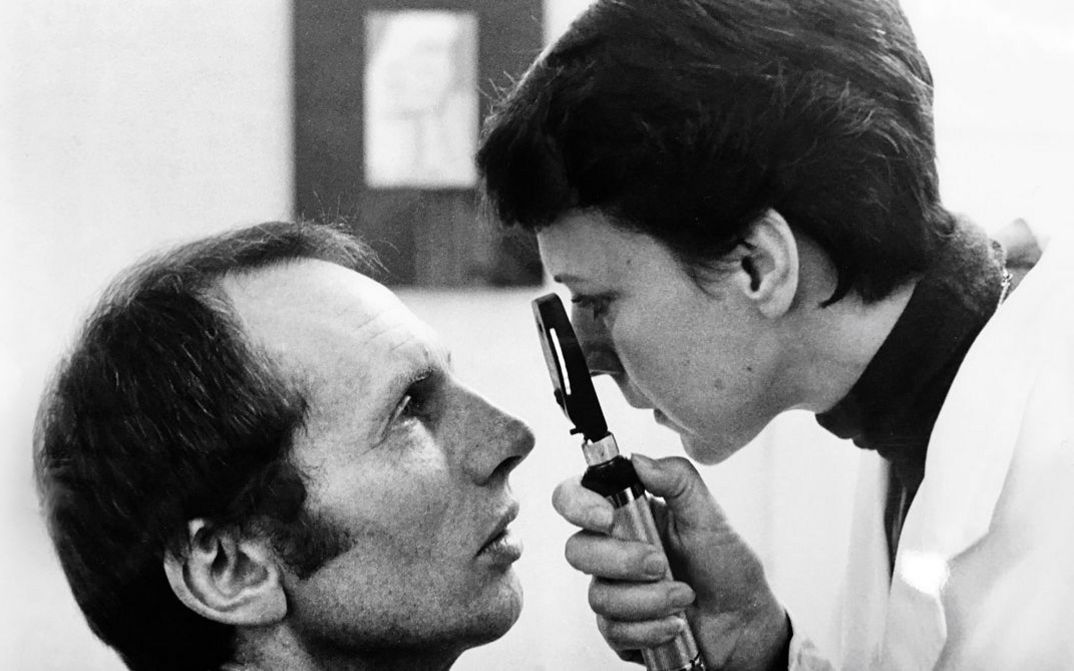Ordnung

Director
Sohrab Shahid Saless
Federal Republic of Germany / 1980
96 min.
/ 16 mm
/ Original version with English subtitles
Original language
German
In the face of political pressure at home, Iranian director Sohrab Shahid Saless moved to Germany in the mid-seventies to continue his filmmaking career there. Yet despite critical acclaim and festival recognition, he remained a perpetual outsider figure in German cinema, a position also explored in typically unflinching fashion in 1980’s ORDNUNG (Order), albeit in transposed form. Aside from his Polish name, Herbert Sladowsky is German through and through, with seemingly everything one needs as such: wife, apartment, career, bourgeois friends. But something is wrong, something that will not be diagnosed or pathologised, but just shown in all its agony with patient, riveting focus, with a stillness that is as hard to bear as Sladowsky’s life. He hasn’t worked as a civil engineer for nearly two years, sits in the dark at home, bellows in the street in the morning to wake up the neighbours, frets about having fed a cigarette to a goat; even when with people, he is always alone. The despairing notes he writes are ultimately misread as poetry, but they are the clearest expression of his desire: “Let them say there is a man who sleeps and never wakes up.” (James Lattimer)
Production Marten Taege. Production company Marten Taege Filmproduktion (Wiesbaden, Germany). Director Sohrab Shahid Saless. Screenplay Sohrab Shahid Saless, Dieter Reifarth, Bert Schmidt. Cinematography Ramin Molai. Editing Yvonne Kölsch, Joachim Weiland. Music Rolf Bauer. Sound Gunther Kortwich, Günther Schmidt. Art director Herberrt Hiller, Barbara Anders. Assistant director Bert Schmidt. Production manager Herbert Kerz. Commissioning editor Christoph Holch. Co-production ZDF. With Heinz Lieven, Dorothea Moritz, Dagmar Hessenland, Ingrid Domann, Peter Schütze, Dieter Schaad, Karl Luzius, Marta Holler, Josefine Klee-Helmdach, Kurt Schmengler, Klaus Grütz, Dieter Reifarth.
Sohrab Shahid Saless, born in Ghazvin, Iran in 1944. After studying film in Vienna and Paris, he returned to Iran in 1968, where he made several short films as well as the two feature-length films YEK ETEFAGH SADEH (Berlinale Forum 1974) and TABIATE BIJAN (Berlinale Competition 1974) between 1968 und 1974. Saless subsequently emigrated to the Federal Republic of Germany, where he produced 13 more directorial works. These included the films IN DER FREMDE (Berlinale Competition 1975), ORDNUNG (Cannes 1980) and UTOPIA (Berlinale Competition 1983) alongside primarily television productions. Sohrab Shahid Saless died in the US in 1998.
Films: 1969: Bazm-e darvishan (6 min.), Dovomin namayeshgah-e Asiai / 2nd Asian Expo (21 min.). 1970: Raghs-haye Torbat-e Jam / Dances of Torbat-e Jam (11 min.), Raghs-haye mahalli-e Torkaman / Turkmen Folk Dances (5 min.). 1971: Aya...? (15 min.). 1972: Siah-o sefid (4 min.). 1973: Yek etefagh sadeh / A Simple Event (80 min.). 1974: Tabiate bijan / Still Life (93 min.). 1975: Dar ghorbat / In der Fremde / Far from Home (91 min.). 1976: Reifezeit / The Coming of Age (105 min.). 1977: Tagebuch eines Liebenden / Diary of a Lover (92 min.). 1979: Die langen Ferien der Lotte H. Eisner / The Long Vacation of Lotte H. Eisner (60 min.). 1980: Grabbes letzter Sommer (204 min.), Ordnung / Order. 1981: Anton Pavlovič Čechov – Ein Leben (95 min.). 1983: Empfänger unbekannt (86 min.), Utopia (198 min.). 1984: Der Weidenbaum / The Willow Tree (100 min.). 1985: Hans – Ein Junge in Deutschland (149 min.). 1987: Wechselbalg / Changeling (135 min.). 1991: Rosen für Afrika (183 min.).